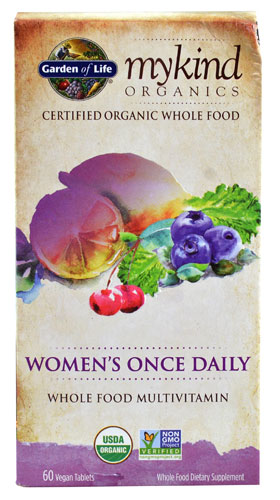The alphabet soup you see behind the names of natural health practitioners might be confusing, yet they’re critically important. Acronyms like CNS and LDN reveal whether a natural health practitioner holds a professional designation that can help you determine whether that practitioner is on the up-and-up.
“Certifications [and other designations] are very important as an external or third-party quality check on a practitioner’s expertise and experience,” says natural biochemist and author Shawn Talbott, who holds several professional designations. “There are lots of mail-order certifications out there and diploma mills that can provide an easy certificate over the Internet, so consumers need to look for validation from established and well-regarded organizations.”
Talbott and others recommend looking for these professional designations.
LDN (licensed dietitian/nutritionist). This might appear as LN or LD, but most states have adopted LDN, says Scott Michael Schreiber, a chiropractic doctor who carries numerous professional designations, including LDN.
CNS (certified nutrition specialist). To qualify for this certification, someone must have earned a master’s degree or professional degree (like MD), Schreiber says, in addition to undergoing 1,000 hours of supervised practice and passing an exam.
RD (registered dietitian). A person with this certification must hold a bachelor’s degree in dietetics, complete an internship and pass an exam, according to Schreiber.
ND (naturopathic doctor). In states that license naturopathic doctors, an ND must have graduated from an accredited four-year naturopathic medical school and have passed a board exam. For more information about licensing of NDs, visit the website of the American Association of Naturopathic Physicians.
DCBCN (diplomate of the Chiropractic Board of Clinical Nutrition). To earn this designation, a chiropractic doctor must undergo an extra 300 hours of training, pass an exam and fulfill other board-imposed requirements, according to Schreiber.
DACBN (diplomate of the American Clinical Board of Nutrition). This designation is similar to DCBCN but is open to all doctoral professions, Schreiber says.
DO (doctor of osteopathic medicine). Like an MD (medical doctor), a DO has earned a medical degree, undergone extensive training and passed a state-mandated licensing exam.
ACE (American Council on Exercise), NSCA (National Strength and Conditioning Association), ACSM (American College of Sports Medicine), NASM (National Academy of Sports Medicine) and CSCS (certified strength and conditioning specialist). These are some of the designations that apply to personal trainers and similar professionals. Chiropractic doctor Erik Korzen calls CSCS the “gold standard” for personal trainers.
LAc (licensed acupuncturist). A licensed acupuncturist typically has earned a degree from a school accredited by the Accreditation Commission for Acupuncture and Oriental Medicine and has passed exams administered by the National Certification Commission for Acupuncture and Oriental Medicine. “Unfortunately, figuring out whether an acupuncturist is licensed is not as easy as it looks,” Acupuncture Today says. “Although the most common degree designation for an acupuncturist is LAc, some states use different titles or abbreviations to signify that their practitioners are licensed.”
RYT (Registered yoga teacher). The Yoga Alliance lists teachers who meet the group’s minimum requirements for teaching experience and who’ve completed training at a registered yoga school (RYS). However, the alliance stresses that this doesn’t represent certification. In fact, neither certification nor licensing is required to teach yoga in the U.S.
LMT (licensed massage therapist), CMT (certified massage therapist), RMT (registered massage therapist). According to the American Massage Therapy Association, most states license, certify or register massage therapists. Licensing is the strictest form of professional regulation. Keep in mind that LMT, CMT and RMT are three of the most common professional designations for massage therapists, but they’re not the only ones.
Aside from checking whether a provider has some sort of professional designation like LMT, a consumer should research whether a licensed practitioner has been reprimanded by a state licensing board, Schreiber says. All actions taken by a state licensing board against a practitioner are public record.
Schreiber stresses that licenses carry more value than certifications. Nonetheless, he says, certifications are important, yet some are regarded more highly than others. The most respected certifications are those issued by independent boards.
Naturopathic doctor Christina Major warns, however, that in her field, some “certified” nutritionists gained their credentials from “less than adequate” schools.
“It’s impossible to learn all the aspects of nutrition, anatomy, physiology and metabolic pathways in less than several years, and many of the certificate schools send their people out with less than six months of training,” Major says. “As a nutritionist with degrees, I have had to fix problems caused by these people and their incorrect and often outdated information.”
Seventeen states and the District of Columbia license naturopathic doctors. As such, naturopathic doctor Serena Goldstein says, some of her counterparts are trained through online programs that don’t require classroom work. In college, Goldstein wrote a thesis that opened her eyes to the need for state licensing of naturopathic doctors.
“I learned that there have been cases of people being harmed or even dying when they thought they were seeing a legitimate ND and the practitioner was performing illegal therapies,” Goldstein says.
Even if a natural health practitioner holds professional designations, a consumer still should talk over the phone or meet in person with a practitioner to determine whether he or she is a “good fit,” says Korzen, the chiropractic doctor.
“My biggest recommendation to my patients when looking for a provider of some kind is to ask others for referrals,” he says.




